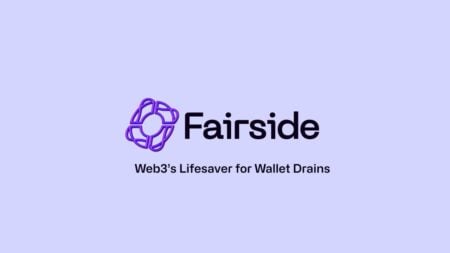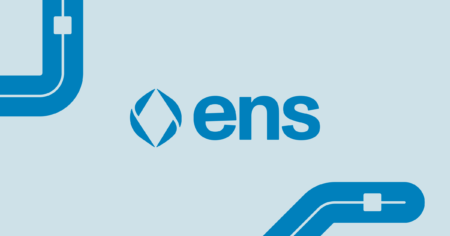The nascent NFT industry continues to be one of the only areas attracting venture capital funding in this negative macro-economic environment. It also continues to attract some of the brightest talent from Web 2, and indeed you may be reading this article to find a way to get more involved in the world of Web 3.
But the way that jobs and freelancing opportunities are happening in this field often tends to be more organic than doing a formal application with your CV. Instead networking through online platforms such as Twitter or attending Web 3 focused events can be more fruitful. Even if you’re not looking to work in the field, by enhancing your network, you can begin to understand better how to invest or get involved in another way in the space.
In this article we explore 4 of these avenues.
Twitter posts

From my time in the NFT space of almost a year, Twitter hands down is the best place to find thought leaders and friends (or as we say “frens”) in the space. By actively following NFT-related accounts, you can find people with nuanced and helpful views on NFT projects, the overall market, strategies and other useful information.
You can also follow project founders and other project team members, NFT “influencers” and collectors. Then you can start interacting with accounts that you vibe with, by commenting on their posts with questions, thoughts or even jokes (or as we call it “shitposting”).
One of the best ways I’ve found though, is to DM an account you respect, asking if they would be happy to have a short call as saying you would like to network in the space/ insert your reason for reaching out. Often, you will get a friendly response back that they’re happy to do so. It’s usually just the larger accounts which don’t respond or refuse to do so due to the number of messages that they end up missing the message or are just too busy.
From these calls, I’ve gained insights into effective ways to find work in NFTs like freelancing writing of NFT articles. So really, from just a simple DM many opportunities may await you! Just do be respectful if you set up a call to ensure you attend on time and try not to cancel last minute, to respect the other person’s time. And do prepare beforehand with a summary about yourself, what you’re looking for and questions for the other person.
Twitter spaces

Twitter Spaces is another great avenue to make connections. You can join existing spaces and ask questions. Usually smaller Spaces are better off to start with that are more informal instead of larger ones which may have a focused agenda and so are less networking focused. They are also less daunting to speak on!
Apart from asking questions, you can contribute your thoughts to a topic if you have one. This can lead to people who like your views to follow you and reach out to network with you. It’s important that you have a completed bio on your Twitter with e.g. what you do in the space / what you’re looking for and perhaps NFT collections you like / are apart of. Don’t look like the bot accounts Elon talks about! If you have a portfolio of relevant work, you can link to this or have a Linktree if there’s multiple websites that you want to include. The more info the better imo.
Tweets and Threads
Also, it’s good to tweet your views when you feel comfortable to. This might be what you think of a certain project, e.g. how you think the Bored Ape Yacht Club will perform in the long term. Or a new project you’re looking at and why. If you do talk about a project you like, I suggest giving a balanced view i.e. with constructive criticism where possible, so that people take your posts seriously. Otherwise they may just think you’re “shilling” your own bags 🙂
Even better than single tweets is Twitter Threads. If you have an informed opinion on a project, you can do a thread setting out your view to provide more analysis than a single thread will allow. If you do this, be sure to include images to attract people to the thread especially on the first post but imo on all posts. And do proof read it and try to make it as compelling as possible e.g. by making it flow nicely and teasing at the start what it will cover.
It’s also good to tag accounts you mention or reference other relevant tweets for increased likeliness of virality. I have done some of these in the past of projects I’m passionate about and one of them hit 100k views! And believe me I’m not an expert writer by any means. Here’s an example of a recent effective thread that I bookmarked which talks about the project Renga.
If you do write a tweet / thread that gets a decent amount of likes and RTs, be sure to pin it to your account. As the first tweet is how new potential followers for your network will judge your Twitter account. It can even just be an introduction about yourself otherwise that’s pinned.
NFT membership groups
From following NFT accounts you like and listening to spaces, you will find that some of these have membership groups targeting areas like NFT education, building a collaborative community, project building and “alpha”.
They may have token-gated discords you can join i.e. you have to buy their NFT to join or may even be free. I have found that joining these can provide you with networking opportunities not available just on Twitter.
For example, I bought a Moonbirds NFT which gave me access to their discord which has a Networking channel. Through this channel, I was able to connect with people working in senior positions at Web 3 companies like Coinbase and Binance, as well as NFT project founders that wanted to speak to me about potential opportunities.
As this collection does tend to attract those working in Web 3/ Tech, it was much easier to find these types of people than just on NFT Twitter and even if I did, sometimes having this shared NFT you are part of makes people more willing to network with you. So obviously this is less likely to work if you try to do this with a profile picture collection that may not have as strong a community or something focused on another area. Like if you join an Alpha NFT group, this may not be as successful as an example.
Other interesting membership communities that focus on NFT education, news and community that you may want to look at include: Zen Academy, dGEN Network, Nifty Portal and NFT Catcher. Of course there are countless others and do not take this as a recommendation to buy a Moonbirds NFT or any other NFTs which these communities may have.
In particular, it’s good to be active in the community you join where you can add helpful responses, questions or ideas. Even just saying good morning (or better “gm”) and having banter can really help build up relationships as people get to know you better. Taking it a step further, you can even ask to help out with the discord for example helping to moderate, writing articles or something else which uses your strengths and interests.
IRL Events

Leaving the best till last. So even though a lot of Web 3 networking is conducted online via often people with animal JPEGs as their profile pictures (!), I’ve found in-person events to be the best for networking.
There’s just something about organically meeting people over drinks or food at an event that can form strong connections. They can get to know you as a person rather than just from some tweets or discord messages which is more stronger I feel. Also, the types of people attending these events primarily go to network!
There are websites such as degen.events which usually covers most Web 3 events around the world. I often check this and attend for example after-work Web 3 drinks which has led to consulting opportunities with Web 3 start-ups as well as making friends in the space.
Even attending NFT art galleries has led to the building of my network and to help me understand more complex areas in the space, such as generative art, where an artist was able to explain this me in a way more understandable than from simply reading articles /listening to podcasts on the topic. As I was able to respond and ask clarifying questions etc.
NFT collections can also hold events. I recently went to an event for holders of the NFT collection Azuki where we played darts and grabbed dinner, which aside from networking with a wide array of people from Devs of other popular NFT projects to TV producers, was just really fun!
Then there are larger events such as Gary Vee’s VeeCon and NFT NYC and the upcoming NFT London, where you can listen to talks about future growth areas in the space for example and then network with the speakers or other attendees. You may even have region based NFT groups like in the UK we have NFT UK which holds many free events around the year with high attendance and production values.
Hopefully this article has widened your knowledge of the various ways to network in the Web 3/ NFT space. Even if you were aware of some of these, you may not have thought about say attending an IRL event or to randomly DM someone you want to work with for example. But, hopefully I’ve given you more confidence to do so!
And of course definitely free to reach out to me as I’m always happy to network with people in this space at @confuseddegen on Twitter 🙂
@ConfusedDegen is an active NFT collector who enjoys writing articles about interesting topics in the space and their NFT collecting journey and also consults for Web 3 start-ups.




